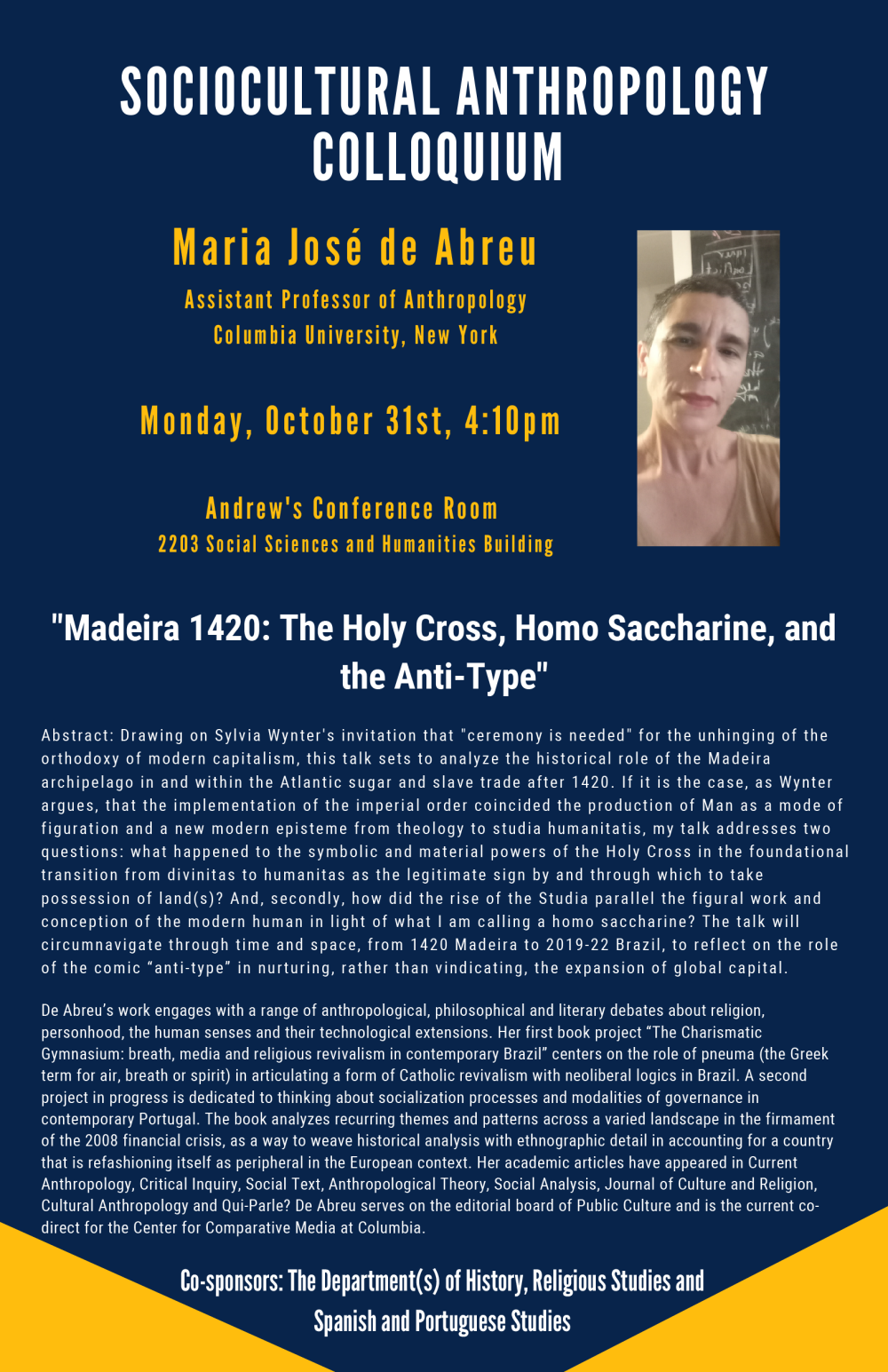Event Date

SOCIOCULTURAL ANTHROPOLOGY COLLOQUIUM
Maria José de Abreu
Assistant Professor of Anthropology
Columbia University, New York
Monday, October 31st, 4:10pm
Andrew's Conference Room
2203 Social Sciences and Humanities Building
Abstract: Drawing on Sylvia Wynter's invitation that "ceremony is needed" for the unhinging of the
orthodoxy of modern capitalism, this talk sets to analyze the historical role of the Madeira
archipelago in and within the Atlantic sugar and slave trade after 1420. If it is the case, as Wynter
argues, that the implementation of the imperial order coincided the production of Man as a mode of
figuration and a new modern episteme from theology to studia humanitatis, my talk addresses two
questions: what happened to the symbolic and material powers of the Holy Cross in the foundational
transition from divinitas to humanitas as the legitimate sign by and through which to take
possession of land(s)? And, secondly, how did the rise of the Studia parallel the figural work and
conception of the modern human in light of what I am calling a homo saccharine? The talk will
circumnavigate through time and space, from 1420 Madeira to 2019-22 Brazil, to reflect on the role
of the comic “anti-type” in nurturing, rather than vindicating, the expansion of global capital.
De Abreu’s work engages with a range of anthropological, philosophical and literary debates about religion,
personhood, the human senses and their technological extensions. Her first book project “The Charismatic
Gymnasium: breath, media and religious revivalism in contemporary Brazil” centers on the role of pneuma (the Greek
term for air, breath or spirit) in articulating a form of Catholic revivalism with neoliberal logics in Brazil. A second
project in progress is dedicated to thinking about socialization processes and modalities of governance in
contemporary Portugal. The book analyzes recurring themes and patterns across a varied landscape in the firmament
of the 2008 financial crisis, as a way to weave historical analysis with ethnographic detail in accounting for a country
that is refashioning itself as peripheral in the European context. Her academic articles have appeared in Current
Anthropology, Critical Inquiry, Social Text, Anthropological Theory, Social Analysis, Journal of Culture and Religion,
Cultural Anthropology and Qui-Parle? De Abreu serves on the editorial board of Public Culture and is the current codirect
for the Center for Comparative Media at Columbia.
Co-sponsors: The Department(s) of History, Religious Studies and
Spanish and Portuguese Studies
